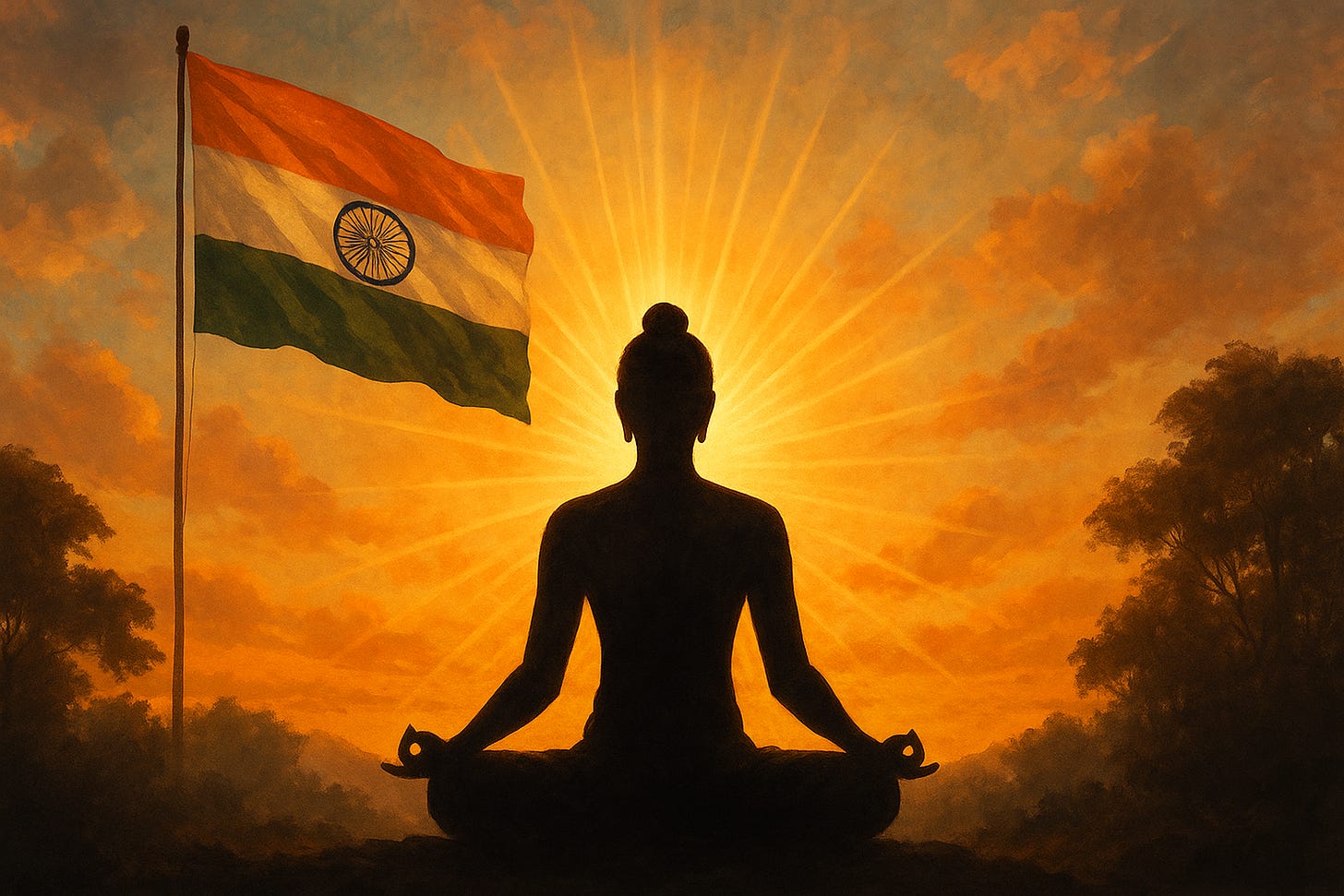The Many Faces of Freedom
On 15th August 1947, India awoke to the dawn of freedom - a hard-won victory after centuries of struggle, sacrifice, and unwavering hope. The tricolour unfurled over a new nation, symbolising the right to self-govern, to make our own laws, and to chart our own destiny. But as we step into another year of independence, we must ask ourselves: Is political freedom the final frontier of liberty, or is there a deeper independence we are yet to claim?
True freedom is more than sovereignty over land and governance. It is the liberation of the mind from fear, the liberation of the heart from hatred, and the liberation of the soul from ignorance. In this sense, India’s journey toward complete independence is not yet over - because the inner revolution is still unfolding.
Political Freedom vs. Spiritual Freedom
Political independence gave us the ability to choose our leaders, write our own constitution, and govern according to our collective will. Yet, the challenges we face today — intolerance, corruption, inequality, and inner unrest - remind us that political liberty alone cannot guarantee a truly free society.
Spiritual independence goes deeper. It is the ability to live in alignment with truth (Satya), compassion (Karuna), and self-awareness (Atma-Jnana). It is the recognition that our true identity is not limited to our religion, caste, language, or region, but is rooted in our shared humanity and divine essence.
Lessons from Our Freedom Struggle
The freedom fighters of India did not merely fight for a political cause; many of them drew their strength from profound spiritual convictions:
Mahatma Gandhi rooted his movement in Ahimsa (non-violence) and Satyagraha (truth-force), both of which are deeply spiritual principles.
Sri Aurobindo envisioned India’s liberation as part of a greater awakening of humanity’s consciousness.
Swami Vivekananda saw political freedom as only the first step toward spiritual rejuvenation.
These leaders understood that the soul of a nation cannot thrive without the soul of its people being free.
The Chains We Still Carry
Even in an independent India, many of us remain bound by invisible chains:
Fear - of losing what we have, of the future, or of those who are different from us.
Hatred - born from prejudice, misunderstanding, and historical wounds.
Ignorance - of our own spiritual nature and of the interconnectedness of all life.
Breaking these chains requires courage, compassion, and the willingness to look within.
Pathways to Spiritual Independence
To complement the legacy of our political freedom, we must now strive for an inner liberation that transforms society from within:
Self-Realization - Understanding who we truly are beyond labels and identities. Meditation, mindfulness, and introspection can guide us here.
Compassionate Living - Choosing empathy over judgment, service over selfishness, and unity over division.
Truth in Action - Speaking and acting with integrity, even when it is difficult.
Inner Harmony - Cultivating peace within ourselves so that we can contribute to peace in our communities.
Freedom as a Living Practice
As the tricolour flutters this Independence Day, let it remind us not only of the struggles of the past but also of the work yet to be done. Political independence was our first great victory. Now, the next chapter calls us toward spiritual independence - a freedom that no external force can grant or take away.
When we free ourselves from fear, hatred, and ignorance, we not only honor the sacrifices of those who came before us, but we also become worthy custodians of the India they dreamed of - a nation that stands tall in both political power and spiritual wisdom.


